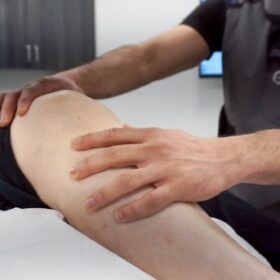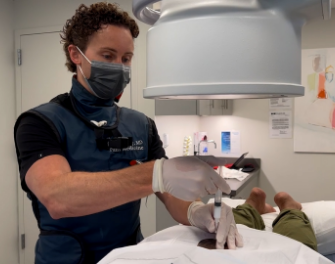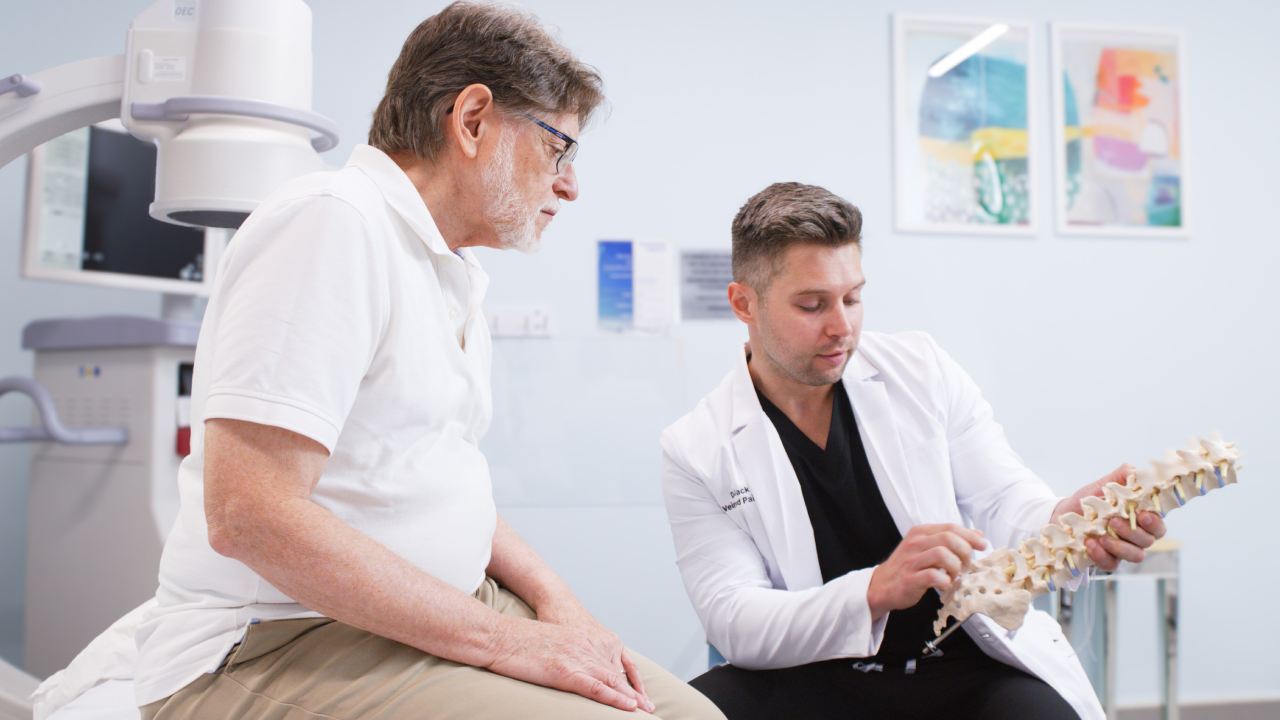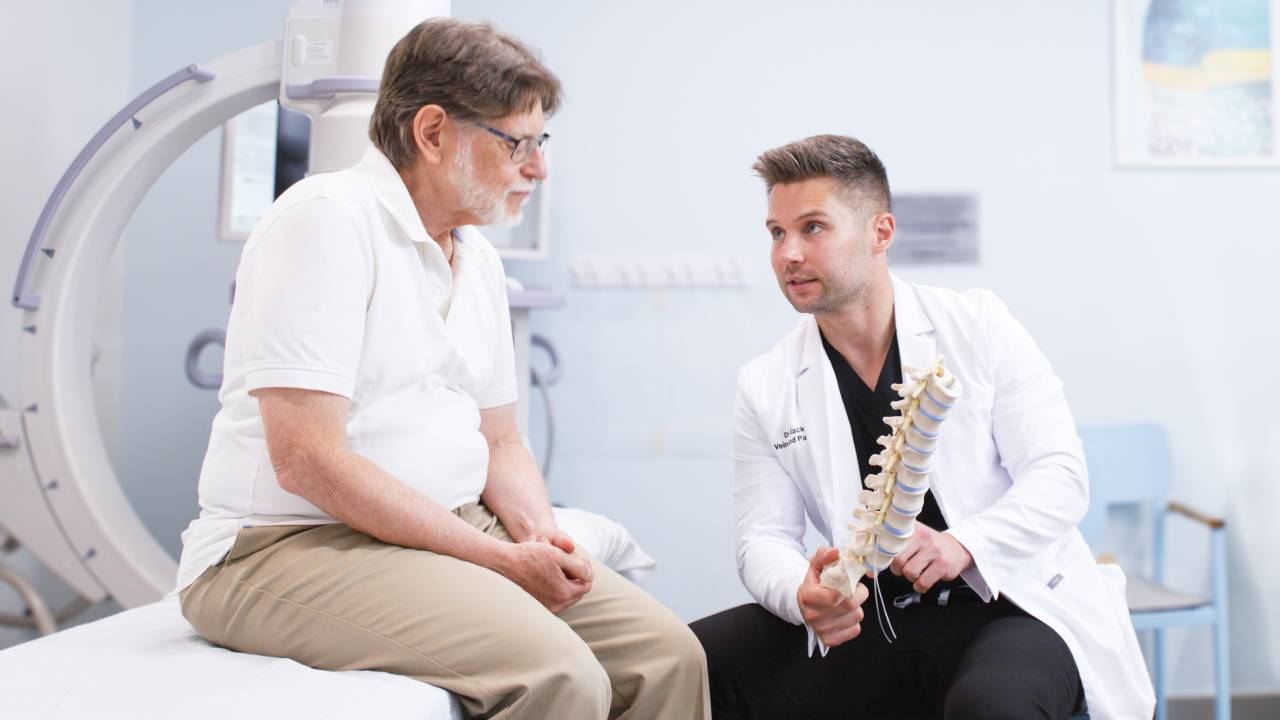
The Impact of Sleep on Chronic Pain
Imagine waking up after a restless night, feeling more exhausted than when you went to bed. As you struggle to rise, you’re greeted by the familiar ache that seems to accompany every movement—a constant reminder of the chronic pain that pervades your days and disrupts your nights. In moments like these, the significance of sleep becomes apparent. A good night’s sleep can do wonders for your sense of pain. While sleep itself may not treat chronic pain, it can make it more manageable, allowing you to engage with life more fully.
In this article, we explore the relationship between sleep and chronic pain, its impacts, and how you can optimize your sleep to better manage your pain.
Are you interested in get more information about your condition or get a treatment?
Fill the form below to start!
1. The Cycle of Pain and Sleep
Imagine a vicious cycle where pain disrupts sleep, and lack of sleep exacerbates pain—a challenging reality for many individuals dealing with chronic pain. When you’re in pain, falling and staying asleep can be nearly impossible. Discomfort can make it difficult to find a comfortable position, leading to restless nights and fragmented sleep. Consequently, insufficient sleep can lower your pain threshold, amplifying the intensity of discomfort. This relationship between pain and sleep creates a challenging scenario where each exacerbates the other.
2. Sleep Quality and Pain Perception
Have you ever noticed how your pain feels more pronounced after a night of poor sleep? There’s a scientific explanation behind this phenomenon. Sleep deprivation affects the brain’s pain processing pathways, heightening your sensitivity to discomfort. Moreover, inadequate sleep disrupts the body’s natural pain-regulating mechanisms, such as the release of endorphins, which are your body’s natural painkillers. As a result, even minor aches and pains can feel more intense when you’re sleep-deprived.
3. Emotional Well-being and Pain Management
Your emotional state and pain levels share a deep-seated connection. Chronic pain often leads to emotional distress, including feelings of anxiety, depression, and irritability. These negative emotions can further disrupt your sleep, perpetuating the cycle of pain and sleep disturbances. Conversely, prioritizing good sleep hygiene and fostering healthy sleep habits can bolster your emotional resilience, providing you with the mental fortitude to cope with chronic pain. Practices like mindfulness meditation and relaxation techniques can promote emotional well-being while facilitating better sleep quality.
4. Immune Function and Pain
Did you know that sleep plays a vital role in regulating your immune system? It’s true—during sleep, your body produces cytokines, proteins that help combat infections and inflammation. Chronic pain is often associated with underlying inflammatory processes, and adequate sleep is crucial for modulating these responses. By optimizing your sleep habits, you can bolster your immune function and mitigate the inflammatory pathways that contribute to chronic pain. Additionally, prioritizing sleep promotes overall health and vitality.
Strategies for Improving Sleep and Alleviating Chronic Pain
Now that we’ve explored the impact of sleep on chronic pain, let’s discuss actionable strategies for enhancing sleep quality and alleviating discomfort:
- Establish a Consistent Sleep Schedule: Aim to go to bed and wake up at the same time every day, even on weekends, to regulate your body’s internal clock.
- Create a Relaxing Bedtime Routine: Before bedtime, engage in calming activities, such as reading, taking a warm bath, or practicing gentle yoga, to signal that it’s time to wind down.
- Cultivate a Sleep-Inducing Environment: Ensure your bedroom is conducive to sleep by keeping it cool, dark, and quiet. Invest in a comfortable mattress and pillows that support your body and alleviate pressure points.
- Limit Stimulants and Screen Time: Avoid caffeine and electronic devices close to bedtime, as they can interfere with your ability to fall asleep. Instead, opt for soothing herbal teas or relaxation techniques to promote sleepiness.
- Stay Active During the Day: Engage in regular physical activity, but avoid vigorous exercise close to bedtime. Physical activity can promote better sleep and help alleviate chronic pain.
- Mindfulness and Relaxation Techniques: Practice mindfulness-based techniques, such as mindfulness meditation or progressive muscle relaxation, to reduce stress and promote relaxation before bedtime. These techniques can help calm your mind and body, making it easier to fall asleep and stay asleep.
- Limit Napping During the Day: While short naps can be beneficial for some individuals, excessive daytime napping can disrupt nighttime sleep. If you need to nap, aim for short naps lasting 20-30 minutes earlier in the day.
- Seek Professional Help: If chronic pain is significantly impacting your sleep and quality of life, don’t hesitate to consult pain specialists who can offer personalized treatment plans.
Other Lifestyle Strategies for Alleviating Chronic Pain
In addition to sleep, you can also implement other lifestyle strategies to support your overall pain management efforts and improve your quality of life, such as:
- Maintain a Healthy Diet: Consume a balanced diet rich in fruits, vegetables, whole grains, and lean proteins. Avoid foods that may exacerbate inflammation or contribute to weight gain, such as processed foods, sugary snacks, and excessive amounts of saturated fats.
- Stay Hydrated: Drink plenty of water throughout the day to stay hydrated. Proper hydration can help lubricate joints and reduce stiffness, potentially alleviating pain associated with conditions like arthritis.
- Manage Stress: Practice stress management techniques, such as deep breathing exercises, yoga, or tai chi. Chronic stress can exacerbate pain symptoms, so finding healthy ways to cope with stress is essential for pain management.
- Maintain a Healthy Weight: Maintain a healthy weight through a combination of a balanced diet and regular physical activity. Excess weight can put added stress on joints and exacerbate pain symptoms, particularly in weight-bearing areas like the knees and hips.
- Stay Active: Engage in regular physical activity tailored to your abilities and preferences. Low-impact exercises such as swimming, walking, or cycling can help improve flexibility, strength, and overall mobility while minimizing stress on joints.
- Practice Good Posture: Pay attention to your posture throughout the day, whether sitting, standing, or lying down. Maintaining proper posture can help alleviate strain on your muscles and joints, reducing the risk of pain and discomfort.
- Incorporate Relaxation Techniques: Incorporate relaxation techniques into your daily routine to promote relaxation and reduce muscle tension. Techniques such as progressive muscle relaxation, guided imagery, or aromatherapy can alleviate pain and promote well-being.
- Stay Connected and Engaged: Stay connected with friends, family, and support networks to maintain emotional well-being. Engage in activities that bring you joy and fulfillment, as positive social interactions and meaningful activities can help distract from pain.
- Consider Complementary Therapies: Explore complementary therapies such as acupuncture, massage therapy, or chiropractic care. These therapies may provide additional pain relief and complement traditional medical treatments for chronic pain.
Consult Pain Treatment Specialists for Minimally Invasive Pain Treatments
Pain Treatment Specialists is dedicated to providing comprehensive pain management solutions tailored to your individual needs. While improving sleep quality and making lifestyle changes can offer significant relief for chronic pain, they may not address the root cause or provide lasting results. That’s where our team of board-certified interventional pain specialists comes in.
Through minimally invasive pain treatments such as nerve blocks, epidural injections, and radiofrequency ablation, we target the source of your pain directly, providing targeted relief with minimal downtime. By consulting Pain Treatment Specialists, you can explore a range of advanced treatment options to alleviate pain and improve your quality of life. Don’t let chronic pain dictate your life – schedule a consultation with us today for lasting pain relief.
FEATURED POSTS BY PAIN DOCTORS



















